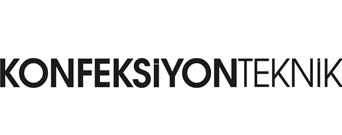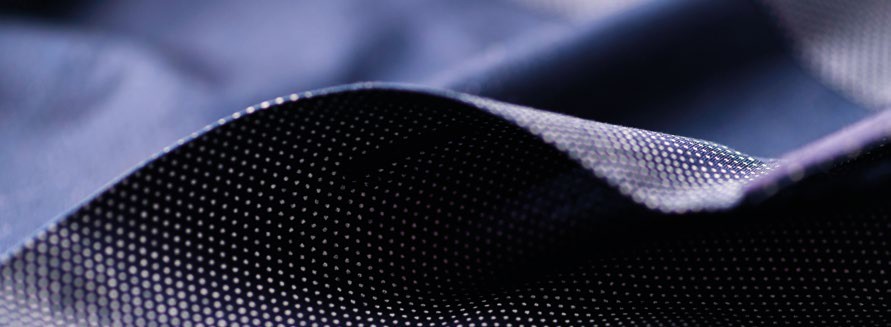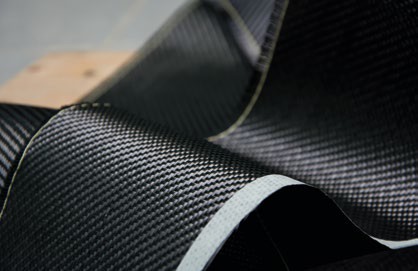Performance, comfort, and sustainability… Technical textiles are revolutionizing the apparel industry by transforming every stage of production — from design to manufacturing. From sportswear to workwear, smart textiles to protective garments, these innovative materials are shaping the future of fashion.
Today, aesthetics alone are not enough in the ready-to-wear industry. Consumers are looking for clothing that is not only stylish, but also functional and sustainable. That’s where technical textiles come in — engineered fabrics designed with specific performance features tailored to their intended use. Unlike conventional materials, they offer advanced benefits such as water resistance, breathability, elasticity, flame retardancy, and thermal insulation, ensuring both comfort and safety in apparel.
The advantages of technical textiles in ready-to-wear
As fashion brands develop their collections, durability, functionality, and sustainability have become the key pillars. Technical textiles offer strong solutions across all these dimensions:
• Durability: High resistance to abrasion, wear, and extreme weather conditions.
• Versatility: Wide range of use in sportswear, outdoor apparel, workwear, and casual fashion.
• Lightweight and breathable: Fabrics that prevent sweating and increase comfort.
• Shape and fit stability: Reduced risk of shrinking or stretching after washing and long-term use.
These features not only enhance consumer satisfaction but also allow brands to create long-lasting, high-performance garments with added value.
Where fashion meets technology: Types of technical textiles
In the ready-to-wear sector, the most widely used types of technical textiles include:
• Abrasion-resistant fabrics: Ensure long-lasting use, especially in workwear.
• Flame-retardant fabrics: Provide safety in highrisk environments.
• Moisture-wicking fabrics: Keep the wearer dry and comfortable, particularly in activewear.
• Microfiber fabrics: Lightweight, stainresistant, and soft — ideal for casual and performance clothing.
• Smart textiles: React to body heat, movement, or UV rays and provide real-time feedback to the wearer.
Thanks to these technologies, garments are no longer just fashion statements — they’ve become performance tools and lifestyle enablers.
A new standard in comfort and performance
The comfort provided by technical textiles is no longer a luxury — it’s an expectation.
These fabrics, used in everything from footwear to athletic tees, offer a dry and comfortable wearing experience. In intense physical activities such as running, trekking, or skiing, they help regulate body temperature while enhancing performance. In sportswear, breathability and stretch offer freedom of movement, while in outerwear, waterproof and thermal features provide maximum protection in harsh conditions.
Technical textiles for sustainable fashion
Beyond performance, technical textiles play a critical role in environmental sustainability. Many are produced using recycled PET bottles, soy-based fibers, or biodegradable materials, reducing carbon footprints and landfill waste. Additionally, production processes typically require less water and fewer chemicals, with minimal fabric waste thanks to precision manufacturing. Their long lifespan also slows down consumption cycles, offering greater value with less waste.
Expanding applications in the apparel sector
Technical textiles are finding more applications in ready-to-wear collections with each passing year. Key areas of use include:
• Sportswear: Lightweight, breathable, and stretchable fabrics for freedom of movement.
• Workwear: Durable garments with protection against fire, chemicals, and impacts. • Everyday Clothing: Wrinkle-free, stain- resistant, and water-repellent materials.
• Medical Textiles: Antibacterial, hygienic, and comfortable clothing for healthcare professionals.
• Smart Wearables: Textiles integrated with wearable technologies.
The future of fashion is technical
The rise of technical textiles is removing boundaries in fashion. Today, clothing is not just about looking good — it’s about protection, functionality, and environmental responsibility. As the key to innovation in the apparel industry, these materials empower designers to develop collections that are both high-performance and stylish. The future of fashion is being shaped by technical textiles — and it’s smarter, safer, and more sustainable than ever before.
***
Dikişten Teknolojiye: Hazır giyim sektörünün dönüşümü
Performans, konfor ve sürdürülebilirlik… Teknik tekstiller, geleneksel kumaş anlayışını kökten değiştirerek hazır giyim sektöründe tasarımdan üretime tüm süreçleri dönüştürüyor. Spor giyimden iş kıyafetlerine, akıllı tekstillerden koruyucu ürünlere kadar geniş bir alanda kullanılan bu yenilikçi malzemeler, modanın geleceğine yön veriyor.
Günümüz hazır giyim sektöründe artık sadece estetik yeterli değil. Tüketiciler hem işlevsel hem de sürdürülebilir ürünler arıyor. İşte bu noktada devreye giren teknik tekstiller, özel mühendislik yöntemleriyle geliştirilen, kullanım amacına özel performans özellikleri taşıyan kumaşlar olarak öne çıkıyor. Geleneksel kumaşlardan farklı olarak; su geçirmezlik, nefes alabilirlik, esneklik, alev geciktiricilik ve ısı yalıtımı gibi özellikler sunan bu malzemeler, giyimde konfor ve güvenliği bir arada sağlıyor.
Hazır giyimde teknik tekstillerin sağladığı avantajlar
Hazır giyim markaları, koleksiyonlarını geliştirirken artık dayanıklılığı, işlevselliği ve sürdürülebilirliği temel kriter olarak ele alıyor. Teknik tekstiller bu açıdan güçlü bir çözüm sunuyor:
• Dayanıklılık: Aşınma, yıpranma ve zorlu hava koşullarına karşı yüksek direnç.
• Çok yönlülük: Spor, outdoor, iş kıyafeti ve günlük moda koleksiyonlarında geniş kullanım imkânı.
• Hafiflik ve nefes alabilirlik: Terlemeyi önleyen, konforu artıran kumaş yapısı.
• Beden ve form stabilitesi: Yıkama ve kullanım sonrası esneme veya küçülme riskinin azalması.
Bu avantajlar, tüketici memnuniyetini artırırken markaların da uzun ömürlü ve yüksek performanslı ürünler geliştirmesine olanak tanıyor.
Moda ve teknolojinin kesişim noktası: Teknik tekstil türleri
Hazır giyim sektöründe en çok tercih edilen teknik tekstil türleri şunlardır:
• Aşınmaya dayanıklı kumaşlar: İş kıyafetlerinde uzun ömür sağlar.
• Alev geciktirici kumaşlar: Güvenlik gerektiren alanlarda koruma sunar.
• Ter emici kumaşlar: Spor giyimde terin hızla buharlaşmasını sağlayarak konforu artırır.
• Mikrofiber kumaşlar: Leke tutmaz, hafif ve yumuşaktır; günlük ve aktif giyimde idealdir.
• Akıllı tekstiller: Vücut ısısı, hareket ya da UV ışığına duyarlı yapılarıyla kullanıcıya aktif geri bildirim sunar.
Bu teknolojiler, giysilerin sadece birer estetik ürün değil, aynı zamanda performans destekçisi ve yaşam kolaylaştırıcısı haline gelmesini sağlıyor.
Konfor ve performansta yeni standartlar
Teknik tekstillerin sunduğu konfor, artık lüks değil bir gereklilik. Ayakkabılardan spor tişörtlere kadar birçok üründe kullanılan bu kumaşlar, hem kuru hem de rahat bir kullanım sunar. Koşu, trekking, kayak gibi yoğun fiziksel aktivitelerde vücut ısısını dengeleyen yapısıyla performansı artırır. Spor giyimde, yüksek nefes alabilirlik ve esneklik sunarken; dış giyimde su geçirmez ve soğuğa karşı dirençli yapısıyla maksimum koruma sağlar.
Sürdürülebilir moda için teknik tekstiller
Teknik tekstiller sadece performans değil, çevresel sürdürülebilirlik açısından da önemli avantajlar sunuyor. Geri dönüştürülmüş plastik şişelerden elde edilen polyester, soya bazlı lifler ya da doğada çözünebilen hammaddelerle üretilen bu kumaşlar, karbon ayak izini azaltıyor. Üstelik üretim sürecinde daha az kimyasal ve su kullanılıyor, kumaş israfı minimuma indiriliyor. Uzun ömürlü olmaları sayesinde ise tüketim döngüsünü yavaşlatıyor ve daha az tüketimle daha fazla değer sunuyor.
Hazır giyimde teknik tekstillerin kullanım alanları genişliyor
Teknik tekstillerin kullanım alanları her geçen gün genişliyor. Hazır giyimde öne çıkan bazı uygulamalar:
• Spor Giyim: Nefes alabilen, hafif ve esnek kumaşlarla hareket özgürlüğü.
• İş Kıyafetleri: Alev, kimyasal ve darbelere karşı dayanıklı koruyucu giysiler.
• Günlük Giyim: Leke tutmaz, kırışmaz ve su geçirmez özellikli kumaşlar.
• Medikal Tekstiller: Antibakteriyel, hijyenik ve konforlu ürünler.
• Akıllı Giysiler: Giyilebilir teknoloji ile entegre tekstiller.
Gelecek, teknik tekstillerle şekilleniyor
Teknik tekstillerin gelişimi, modada sınırları ortadan kaldırıyor. Artık giyim sadece görünmekle değil; korumak, desteklemek ve çevreye saygılı olmakla da ilgili. Hazır giyim sektöründe inovasyonun anahtarı haline gelen bu malzemeler sayesinde, tasarımcılar hem fonksiyonel hem de stil sahibi koleksiyonlar oluşturabiliyor.





